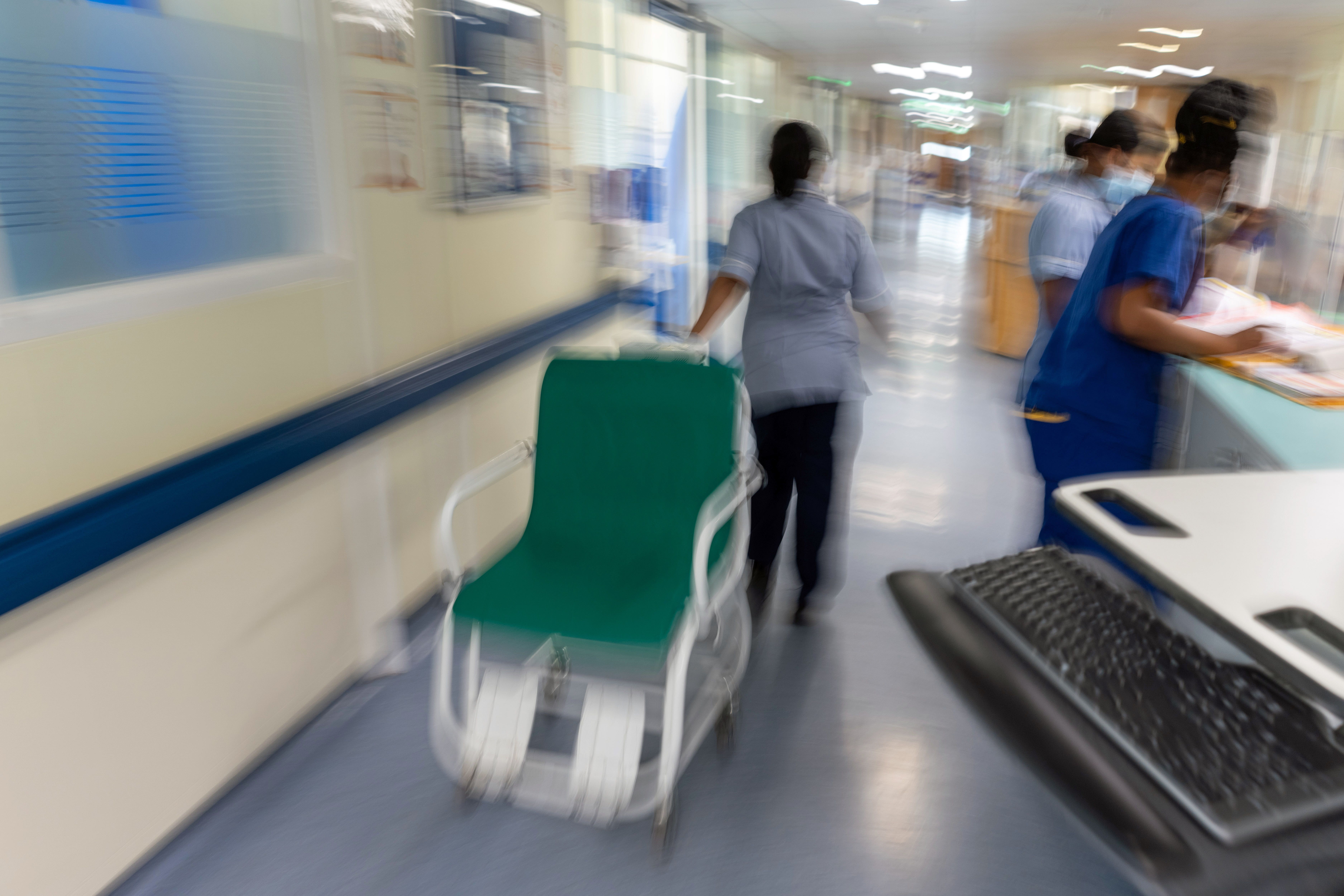Long-term work sickness absence ‘a serious fiscal threat’ to UK
The IPPR Commission on Health and Prosperity said there is now a chance to deliver ‘once-in-a-generation NHS reform’ to avert ‘killer’ costs.

Long-term sickness – with people out of the labour market – has become a “serious fiscal threat” to the UK and action is needed to reform health and social care, according to a new report.
The Institute for Public Policy Research (IPPR) study for its Commission on Health and Prosperity said there is a chance to deliver “once-in-a-generation NHS reform” to avert “killer” costs and end second-rate care.
It said the number of people out of the labour market due to sickness is now at an all-time high of 2.6 million, warning “there is no road to prosperity for this nation without tackling the tide of sickness head-on”.
Experts behind the study said health and social care services have a leading role to play in making the country healthier and “more prosperous” but are currently failing to do so.
On our current trajectory, we will increasingly ‘spend more to get less’
“The number of deaths that could have been avoided with timely healthcare or public health interventions is much higher in the UK than in all other comparable European nations,” the report said.
“We estimate that if the UK had an avoidable mortality rate similar to those in comparable European countries, around 240,000 fewer people would have died in the decade from 2010.”
The study puts some of the blame on the inability to access care in a timely way and rising NHS waiting lists.
It continued: “Against all logic, in the adult social care market a rising number of requests for care (demand) is being met with a shrinking number finding care providers (supply).”
Quality of care has also fallen, the report went on, while cancer survival rates remain “stubbornly lower in the UK than in virtually all other rich democracies”.
Deaths from dementia are also “radically higher” than in peer countries.
“Although service performance has been declining, service expenditure has been rising,” the report said.
“On our current trajectory, we will increasingly ‘spend more to get less’.
The NHS and social care system is vital to our individual and national health and prosperity
“On the post-pandemic trajectory, new modelling commissioned for this report finds government healthcare spending in England is on course to rise from 9% of GDP to 11.2%of GDP by 2033/34.
“This is much faster than the rate at which we expect the economy to grow, suggesting cuts for other public services or rationing of health and social care services.”
In a 10-point plan, the report said there is a need to prevent future ill-health through creating neighbourhood health hubs to deliver integrated services in every neighbourhood.
It also proposed a social care guarantee, “delivered by replacing unfair user charges with free personal care and driving up the quality of providers”.
There should also be a new deal for health and care workers, “from better take-home pay to stronger worker rights, to retain and remotivate the workforce”.
The IPPR report said the reforms could save taxpayers up to £205 billion over the next decade. It said the annual saving is worth the equivalent of the current UK defence budget by 2033/34.
Former health minister Lord Ara Darzi, who is co-chairman of the IPPR Commission on Health and Prosperity, said: “The NHS and social care system is vital to our individual and national health and prosperity.
“Too many people are struggling to get high-quality care when they need it most. As a result, there are growing calls for us to change our ‘free at the point of need’ system.
“But now is not the time to abandon the principles which underpin the NHS.
“Instead, we must renew and extend them in order to deliver better health, a stronger economy and a fairer society. This report sets out a plan to achieve this.”
Sick Britain is costing us our lives, our livelihoods and harming the UK economy
Lord James Bethell, former health minister and commissioner, said: “Sick Britain is costing us our lives, our livelihoods and harming the UK economy.
“If we want to change course, we must stop pretending that the answers are always more hospitals and more acute staff.
“Instead, we must start taking action to reduce demand and need for healthcare, through prevention.
“A mission for a healthy Britain, that targets the concurrent epidemics of obesity, gambling, addiction and online harm, is a precondition for any sustainable, effective national health service in the 21st century.”
Bookmark popover
Removed from bookmarks